Bananas and 6 health benefits
Bananas and 6 health benefits
Bananas are one of the most popular fruits on the world. They contain essential nutrients that protect our health. Fortunately, bananas are a cheap and easy to find fresh fruit, so it is handy for anyone who wants to include bananas in the list of safe foods service their healthy eating.
Bananas have been cultivated for thousands of years. Although they are native to Southeast Asia, but they easily grow in many warm climates, so they are present worldwide.
All parts of the banana, including the fruit, leaves, stem, flowers, and roots, can be used as medicine. Bananas contain chemicals and sugars. Some of these sugars act like fiber, which can help regulate the gastrointestinal system. The chemicals act like antioxidants and reduce swelling. Bananas also contain potassium, vitamins and minerals.
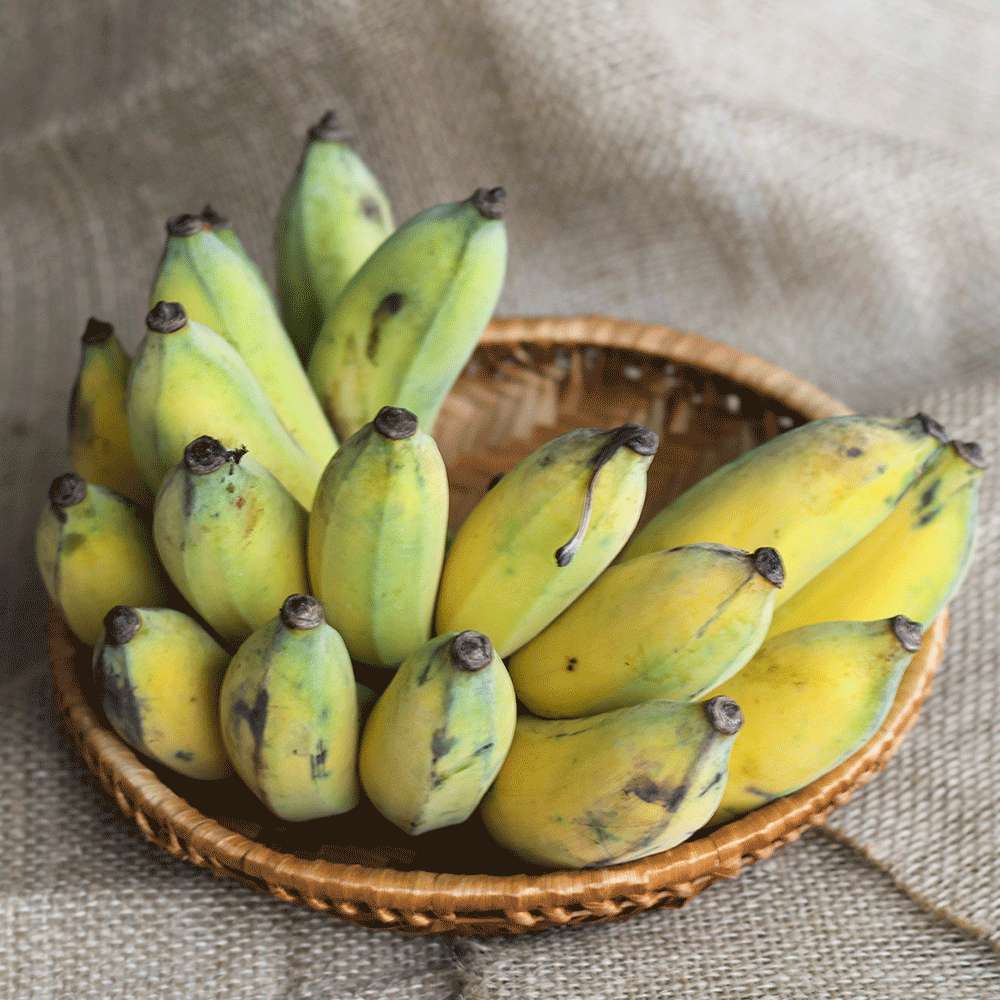
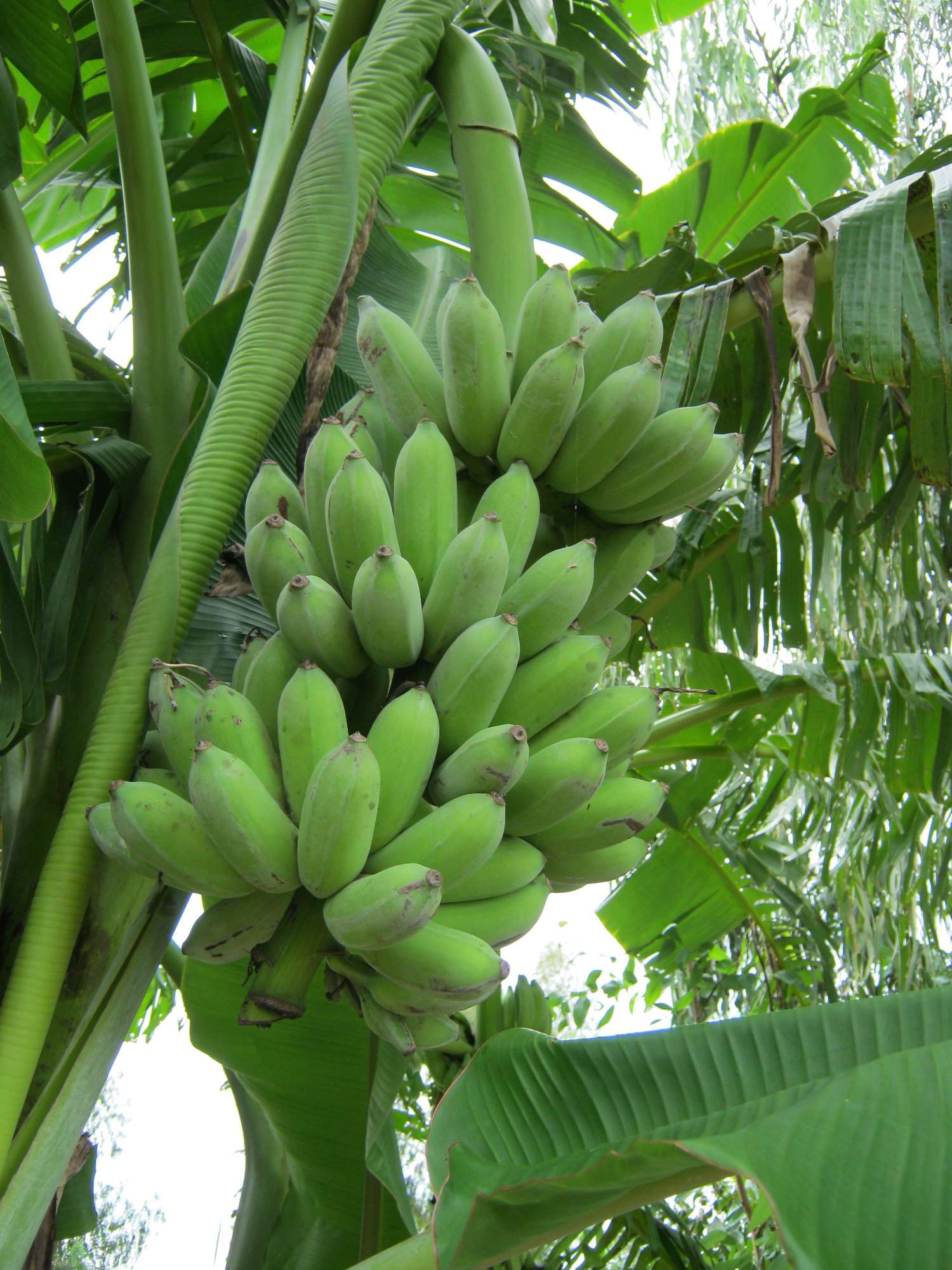
FRESH BANANAS IN YOUR KITCHEN
Fresh bananas are available year-round. Bananas will ripen steadily at room temperature. To ripen faster, people can try keeping them in a paper bag. Refrigerated bananas will ripen more slowly. The outer peel of the banana will darken in the fridge, but the banana itself will stay intact longer.
NUTRITION FROM BANANAS
The table below shows the amount of each nutrient in a medium sized banana. It also shows how much an adult needs of each nutrient.
| Nutrient | Amount in one medium banana | Daily adult requirement |
| Energy (calories) | 105 | 1,800–3,000 |
| Carbohydrate in grams (g) | 27, include 14.4g of sugar | 130 |
| Fiber (g) | 3.1 | 25.2–33.6 |
| Protein (g) | 1.3 | 46–56 |
| Magnesium (mg) | 31.9 | 320–420 |
| Phosphorus (mg) | 26 | 700 |
| Potassium (mg) | 422 | 4,700 |
| Selenium in micrograms (mcg) | 1.9 | 55 |
| Choline (mg) | 11.6 | 425–550 |
| Vitamin C (mg) | 10.3 | 75–90 |
| Folate (mcg DFE) | 23.6 | 400 |
| Beta carotene (mcg) | 30.7 | No data |
| Alpha carotene (mcg) | 29.5 | No data |
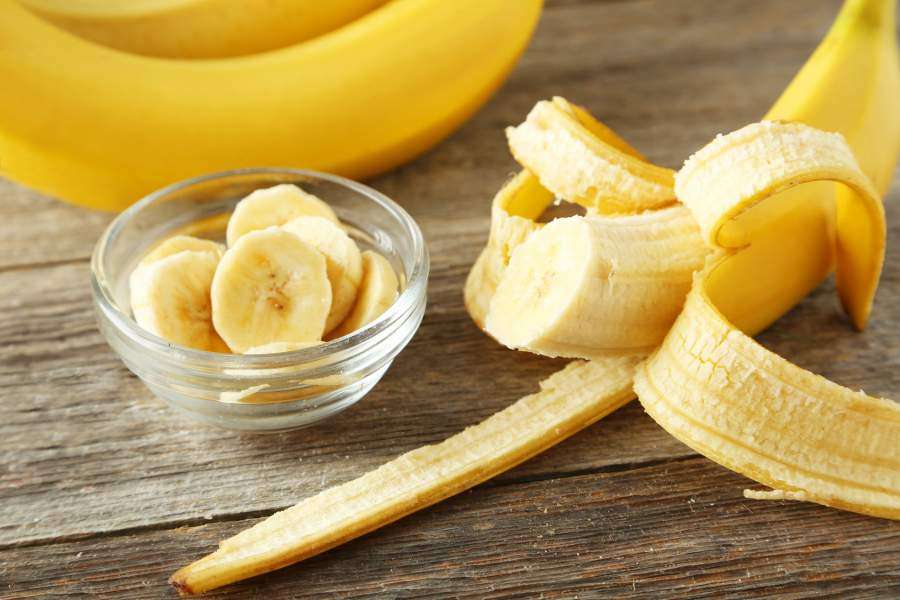
BANANAS FULL OF ANTIOXIDANTS
Fruits and vegetables are excellent sources of dietary antioxidants, and bananas are no exception. Bannanas contain several types of potent antioxidants, including flavonoids and amines. These antioxidants are linked to many health benefits, such as a reduced risk of heart disease and degenerative illnesses. They help prevent oxidative damage to your cells caused by free radicals. Without antioxidants, free radicals can build up over time and cause harm if their levels become high enough in your body.
BANANAS ARE RICH IN THE MINERAL POTASSIUM
One medium sized banana contains 422 milligrams(mg) of potassium. Potassium helps maintain fluid levels in the body and regulates the movement of nutrients and waste products in and out of cells. Potassium also helps muscles to contract and nerve cells to respond. It keeps the heart beating regularly and can reduce the effect of sodium on blood pressure. And more, potassium may reduce the risk of kidney stones forming as people age. It is best to try to get potassium from dietary sources, such as bananas.
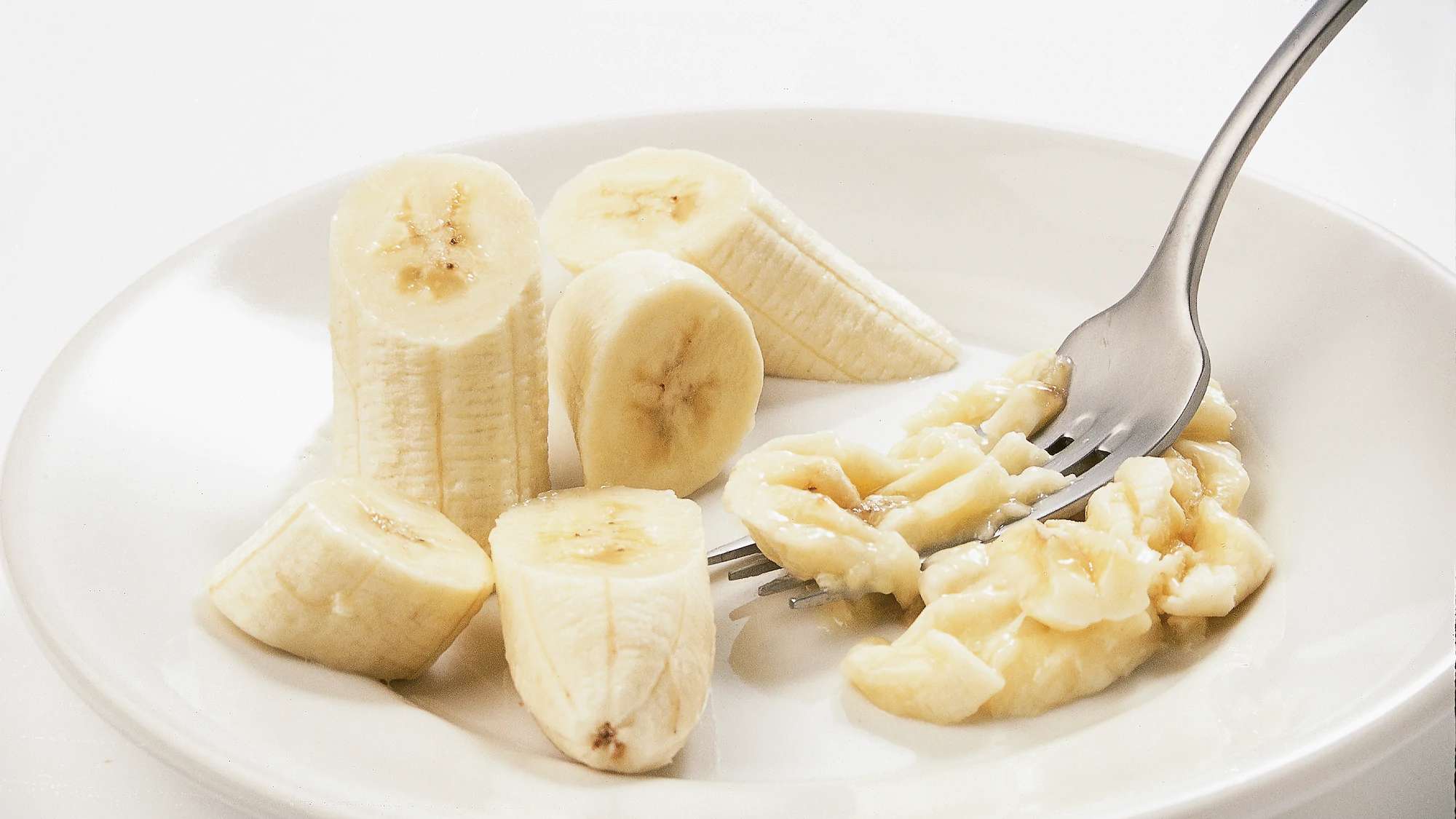
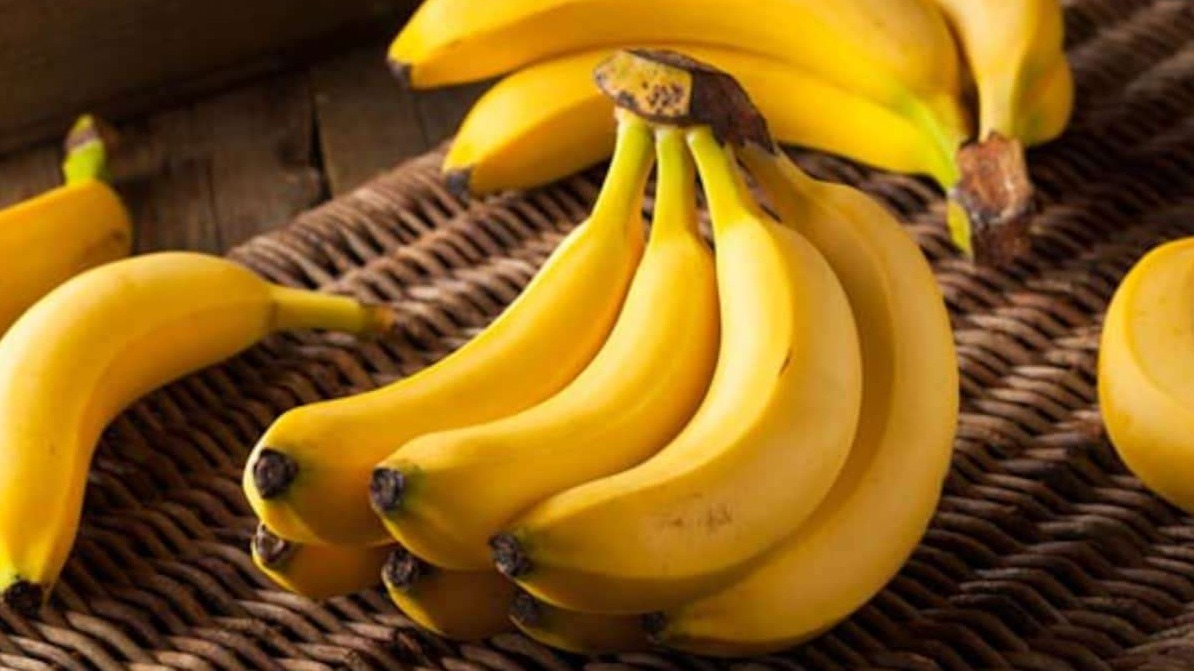
BANANAS AND 6 HEALTH BENEFITS
May aid weight loss
No study has directly tested bananas’ effects on weight loss. However, this popular fruit does have several attributes that could make it a weight-loss-friendly food.
The soluble fiber in bananas may help keep you full by adding bulk to your digestive system and slowing digestion. Additionally, bananas are relatively low in calories for their size.
Combined, the low calorie and high fiber contents of bananas make them a more filling snack than other foods like processed or sugary boxed snacks. Unripe bananas are packed with resistant starch, so they tend to be filling and reduce appetite.
Protein is also filling, but bananas are low in this macronutrient. So, for a hunger-fighting snack, try eating a sliced banana with protein-rich foods like yogurt.
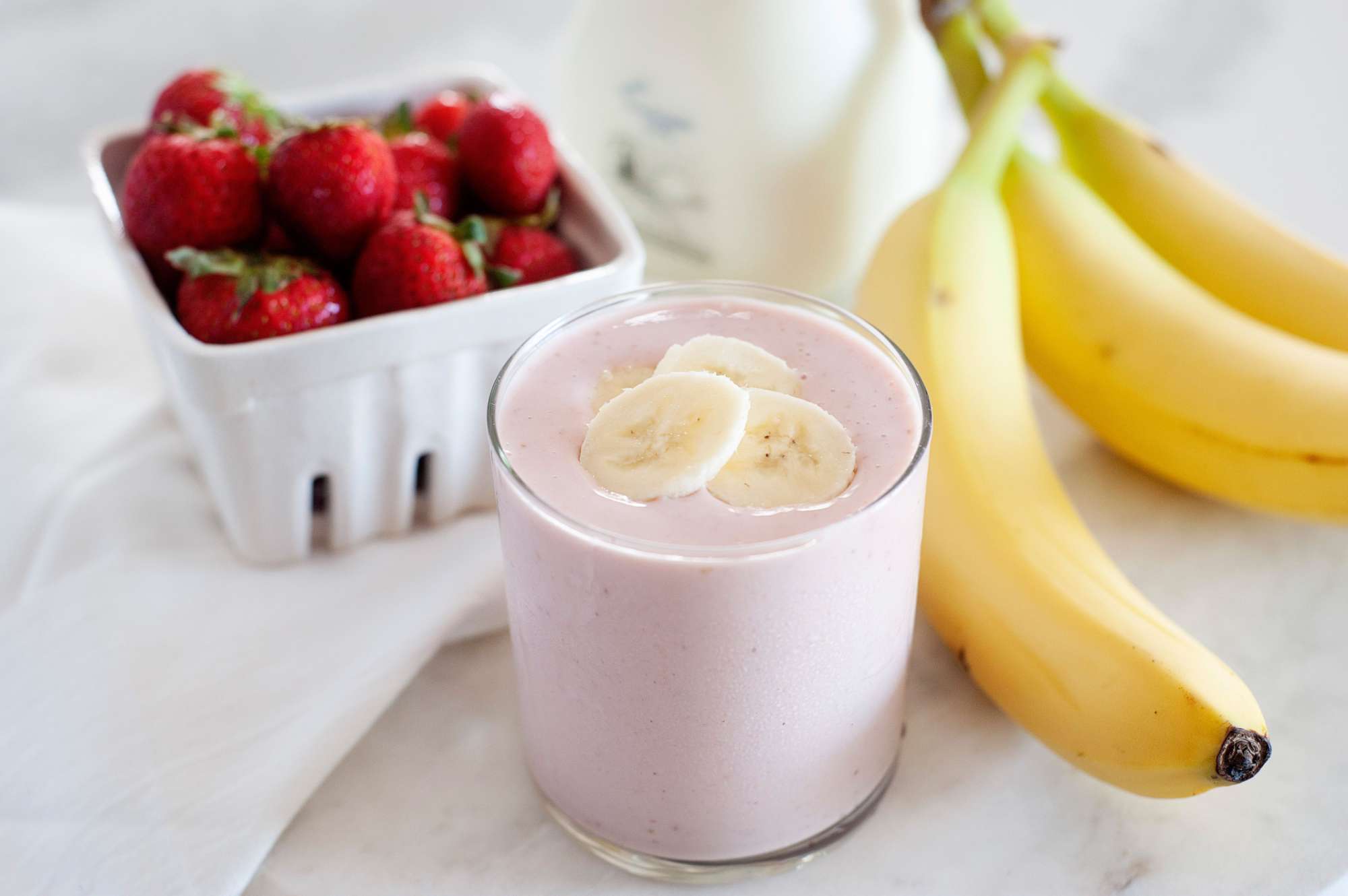
Support digestive health
Bananas contain water and fiber, both of which promote regularity and encourage digestive health. One medium banana provides approximately 10% of a person’s fiber needs for a day.
Resistant starch, the type of fiber found in unripe bananas, is a prebiotics which are soluble fiber that serves as a food source for beneficial bacteria. Prebiotics escape digestion and end up in large intestine, where they become food for the beneficial bacteria in gut.
What’s more, pectin — a fiber found in both ripe and unripe bananas — may help prevent constipation and soften stools.
Some test-tube studies even propose that pectin may help protect against colon cancer, although research in humans is still needed to confirm this benefit.
Diarrhea can lead to a loss of water and electrolytes, such as potassium. Bananas can replace these nutrients.
According to a 2012 study, high fiber foods can trigger bloating, gas, and stomach cramps in people with inflammatory bowel disease (IBD). But bananas may improve symptoms.
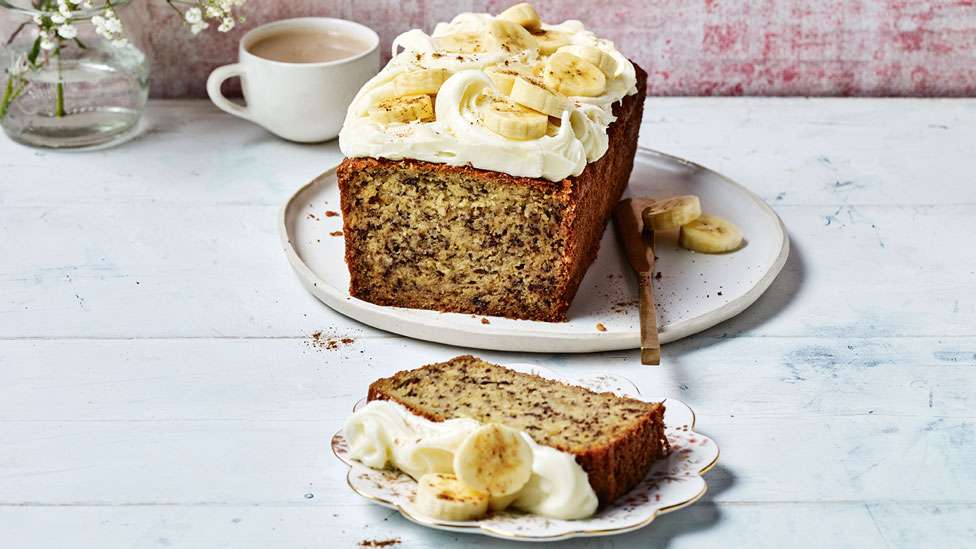
Improve blood sugar levels
Bananas are rich in soluble fiber. During digestion, soluble fiber dissolves in liquid to form a gel. It’s also what gives bananas their sponge-like texture.
Unripe bananas also contain resistant starch, which isn’t digested by body.
Together, these two types of fiber may moderate blood sugar levels after meals. Plus, they may help regulate appetite by slowing the emptying of your stomach.
This means that despite their higher carb content, bananas won’t cause major spikes in blood sugar levels in healthy individuals. However, while people with diabetes can enjoy bananas, it’s not recommended to enjoy a large portion in one sitting.
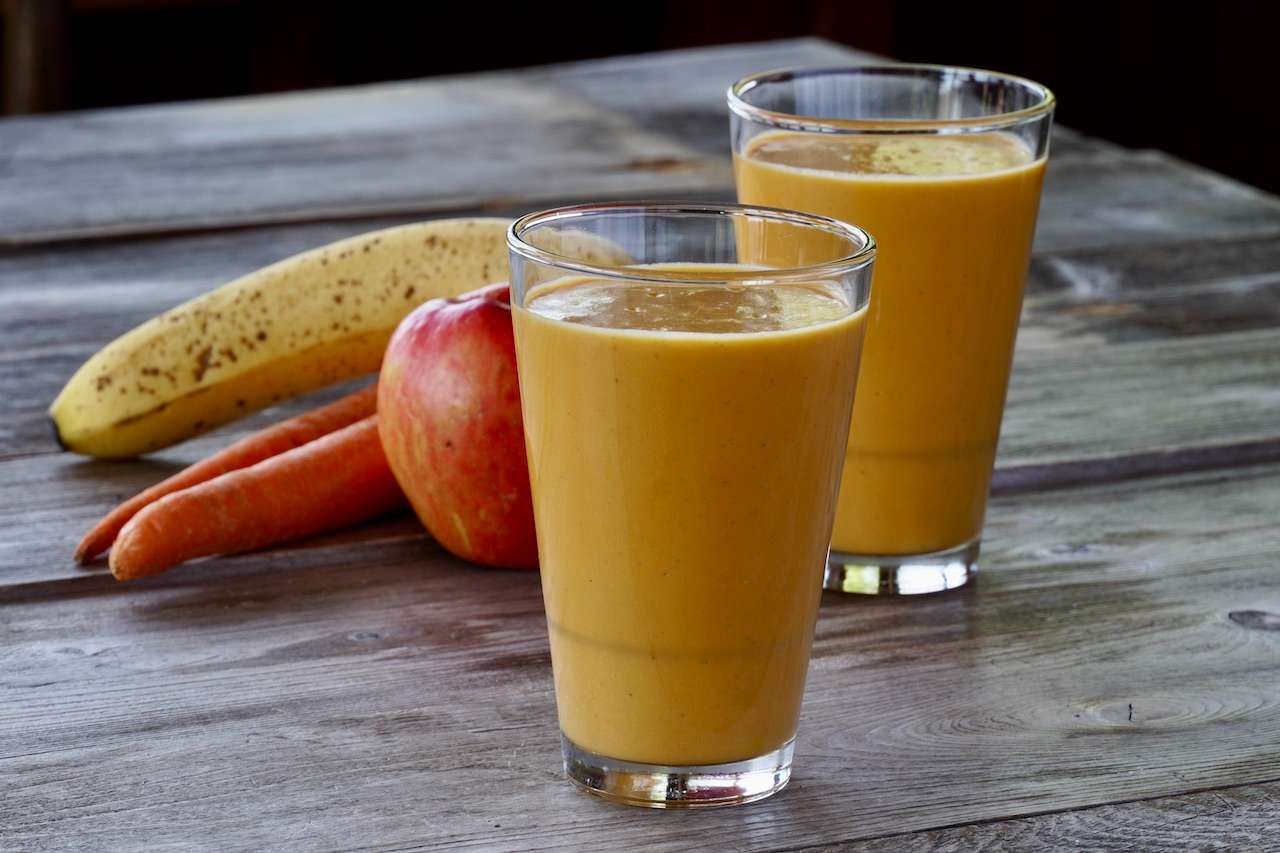
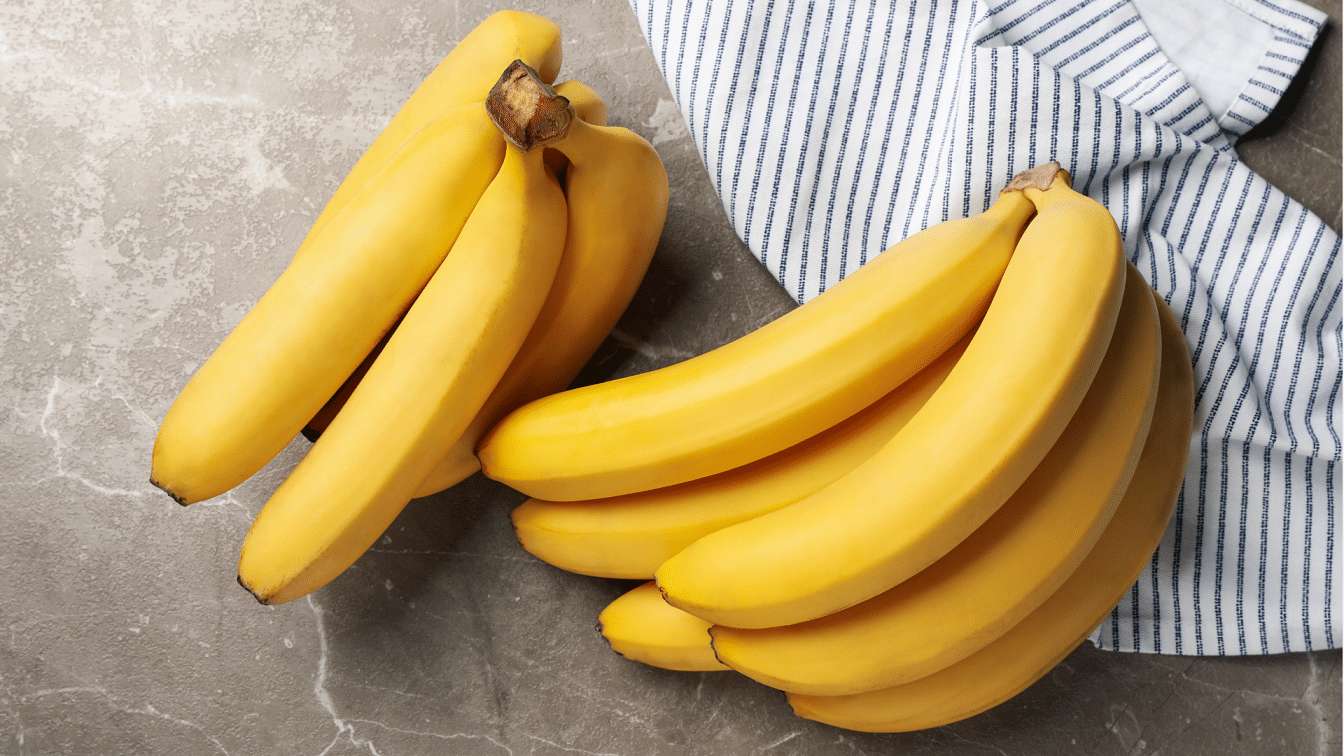
Support heart health
Bananas contain fiber, potassium, folate, and antioxidants, such as vitamin C. All of these support heart health.
A 2017 review found that people who follow a high fiber diet have a lower risk of cardiovascular disease than those on a low fiber diet. Those who consumed more fiber also had lower levels of low-density lipoprotein (LDL), or “bad” cholesterol.
The American Heart Association (AHA) encourage people to lower their intake of salt, or sodium, and increase their consumption of foods that contain potassium. Potassium can help manage blood pressure and reduce strain on the cardiovascular system.
A medium banana provides almost 9% of a person’s daily potassium needs, according to the nutritional information from the above sources. Potassium is a mineral that’s vital for heart health, especially blood pressure management. Despite its importance, few people get enough potassium in their diet.
A potassium-rich diet can help lower your blood pressure. Plus, according to older research and animal studies, people who eat plenty of potassium have up to a 27% lower risk of heart disease.
What’smore, bananas contain 8% of the DV for magnesium, a mineral that’s important for heart health. Magnesium deficiency may be linked to an increased risk of heart disease, elevated blood pressure, and high levels of fats in the blood. As such, it’s essential that you get enough of the mineral from your diet or supplements.
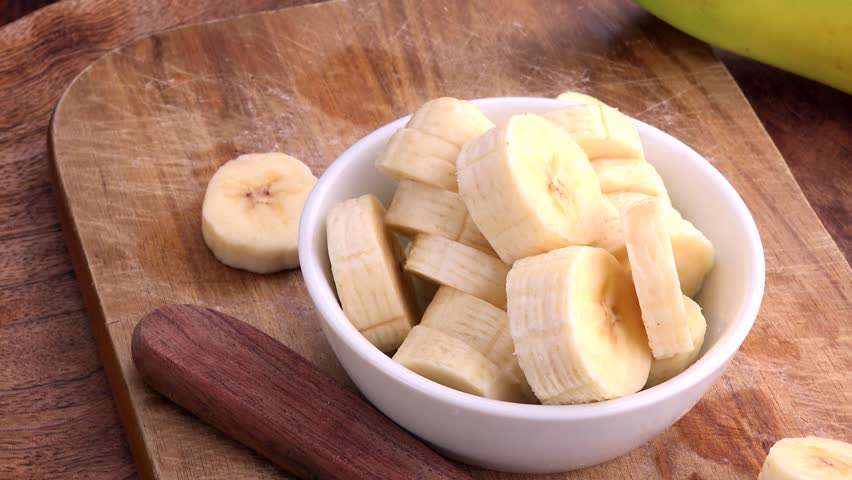
Improve kidney health
Potassium is vital for healthy kidney function and blood pressure regulation. As great dietary sources of potassium, bananas could be especially beneficial when it comes to keeping your kidneys healthy.
One study including over 5,000 people with early stage chronic kidney disease linked potassium to lower blood pressure and a slower progression of kidney disease.
On the other hand, some people with late stage kidney disease or who are on dialysis need to restrict their potassium intake. If you fall into one of these categories, speak with your healthcare team before increasing your potassium intake.
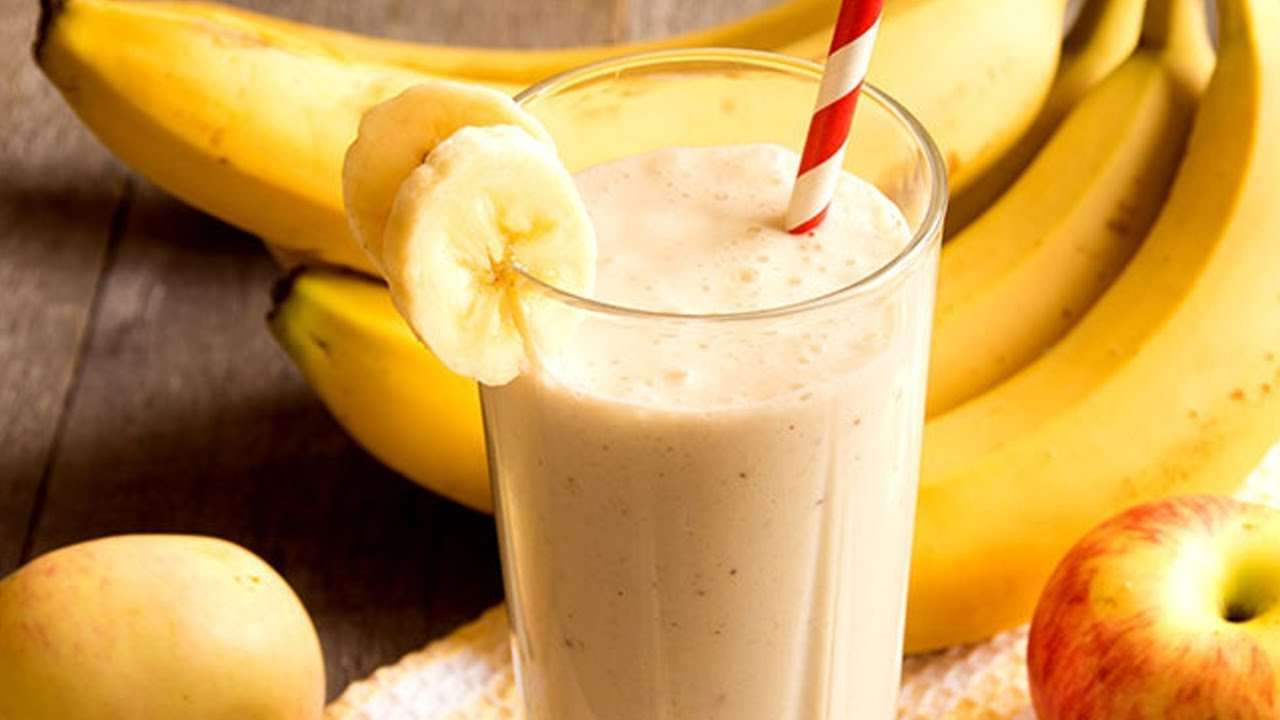
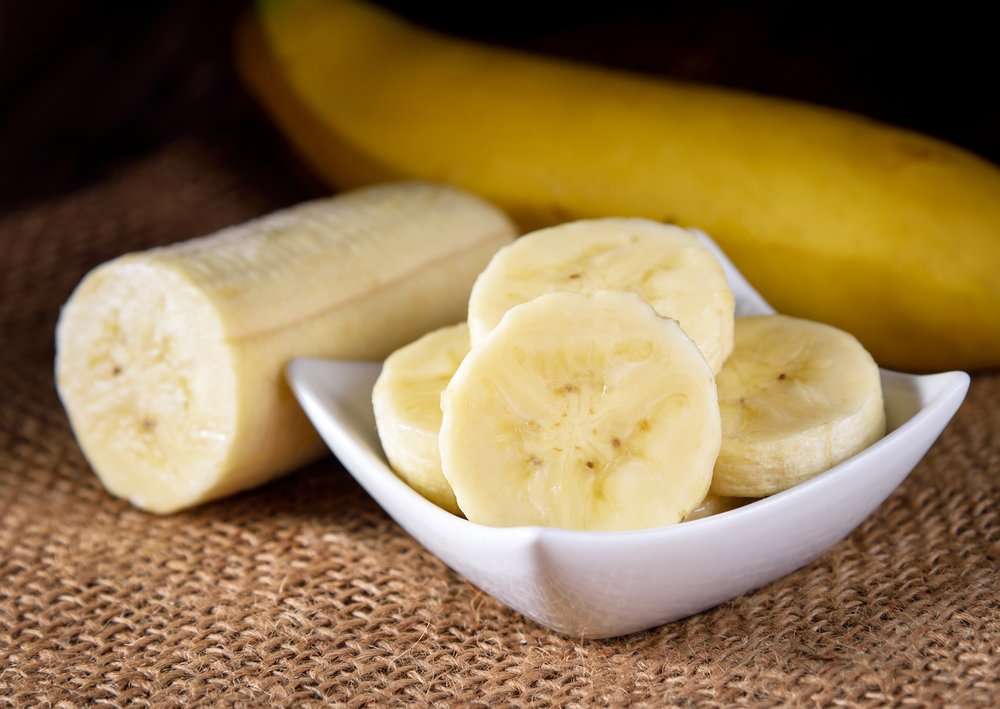
Cancer
Laboratory investigations have suggested that lectin, a protein that occurs in bananas, may help prevent leukemia cells from growing.
Lectin acts as an antioxidant. Antioxidants help the body remove molecules known as free radicals. If too many free radicals build up, cell damage can occur, potentially leading to cancer.
In 2004, researchers noted that children who consumed bananas, orange juice, or both appeared to have a lower risk of developing leukemia. The study authors suggested that this could be due to the vitamin C content, as this, too, has antioxidant properties.
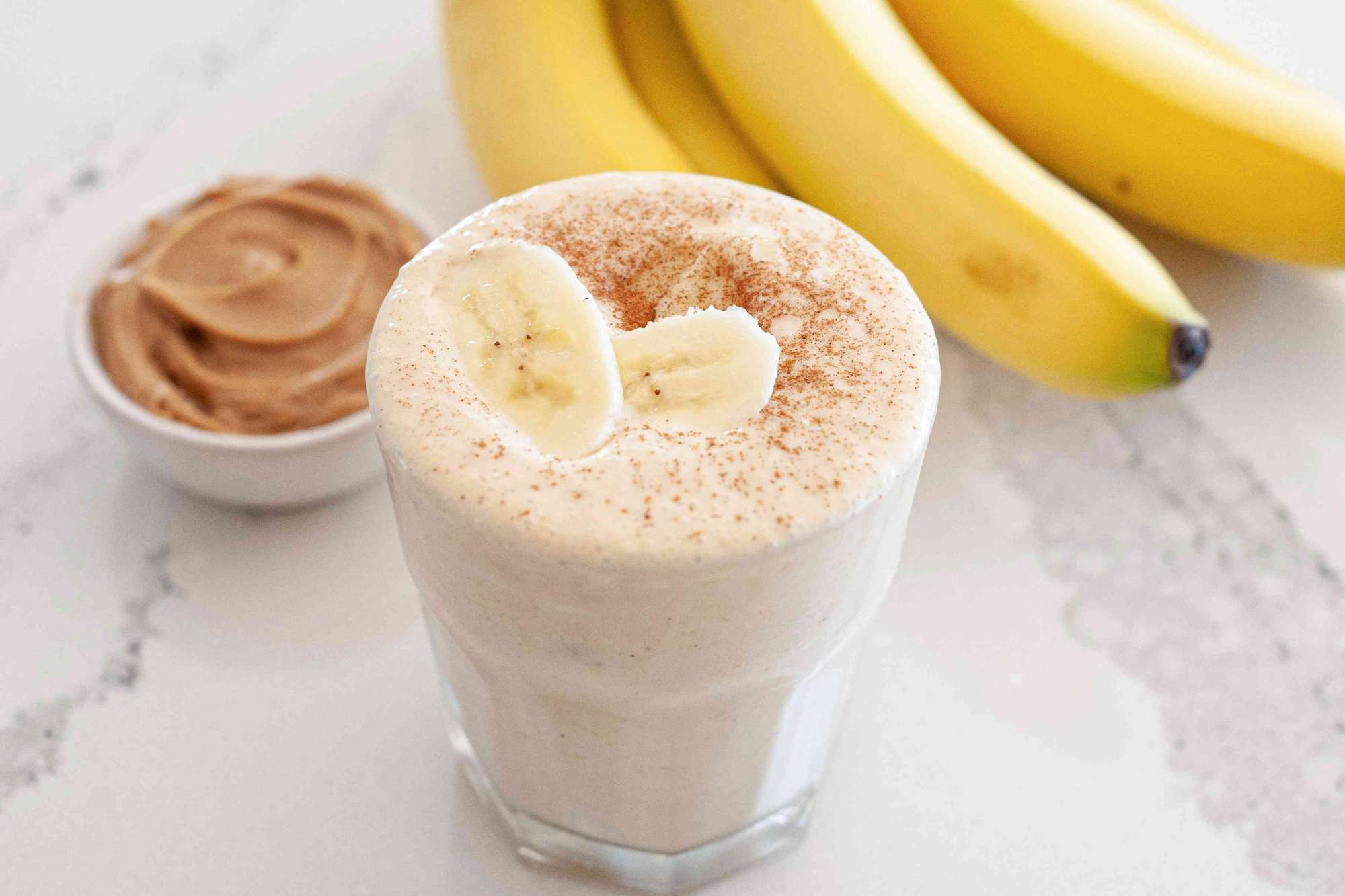
HOW MANY BANANAS SHOULD YOU EAT?
Balance and variety are important hallmarks of a healthy eatingt. One to two bananas a day is considered a moderate amount for most healthy people.
Eating in moderation is the best way to reap the most benefits. It is advisable to ensure that your diet is balanced with different foods that provide the nutrients that bananas lack. Bananas are full of important nutrients, but eating too much can do more harm than good. Remember this important point: Too much of a single food can contribute to weight gain and nutrient deficiencies.
Your body is a complex system that requires a variety of nutrients to function properly. The best way to make sure you're getting everything your body needs is to eat a variety of foods from each food group. Don't forget to include a variety of nutrient-rich fruits, vegetables, lean protein, and healthy fats. Be sure to eat this fruit as part of a balanced diet that provides all the nutrients your body needs.

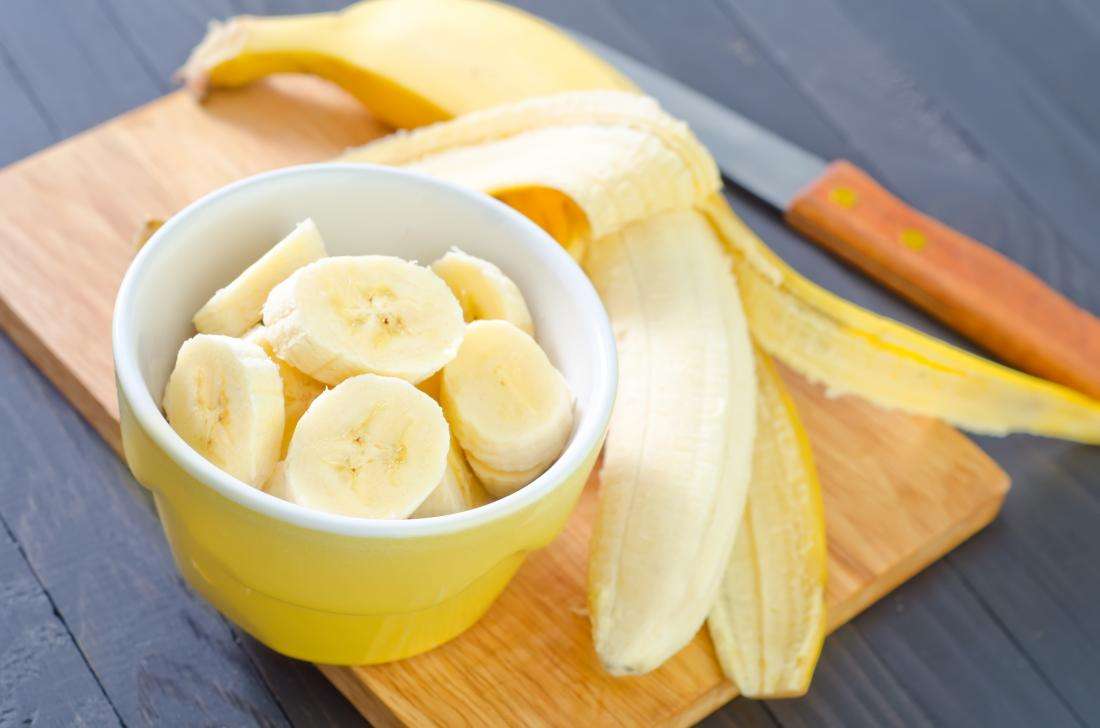
RISKS IN CASE OF EATING TOO MANY BANANAS
Allergy:
Bananas may trigger an allergic reaction in some people. Anyone who experiences itching, hives, swelling, wheezing, or difficulty breathing should seek medical help at once. A severe reaction can lead to anaphylaxis, which can be life threatening.
Migraine:
Bananas may trigger migraines in some people.
Beta-blockers:
Doctors often prescribe these drugs to reduce the risk of complications that they associate with cardiovascular disease. Beta-blockers can raise potassium levels in the blood.
Consuming too much potassium can be harmful to those whose kidneys are not fully functional. If the kidneys are unable to remove excess potassium from the blood, it could be fatal. People who use beta-blockers should eat high potassium foods (such as bananas ) in moderation.
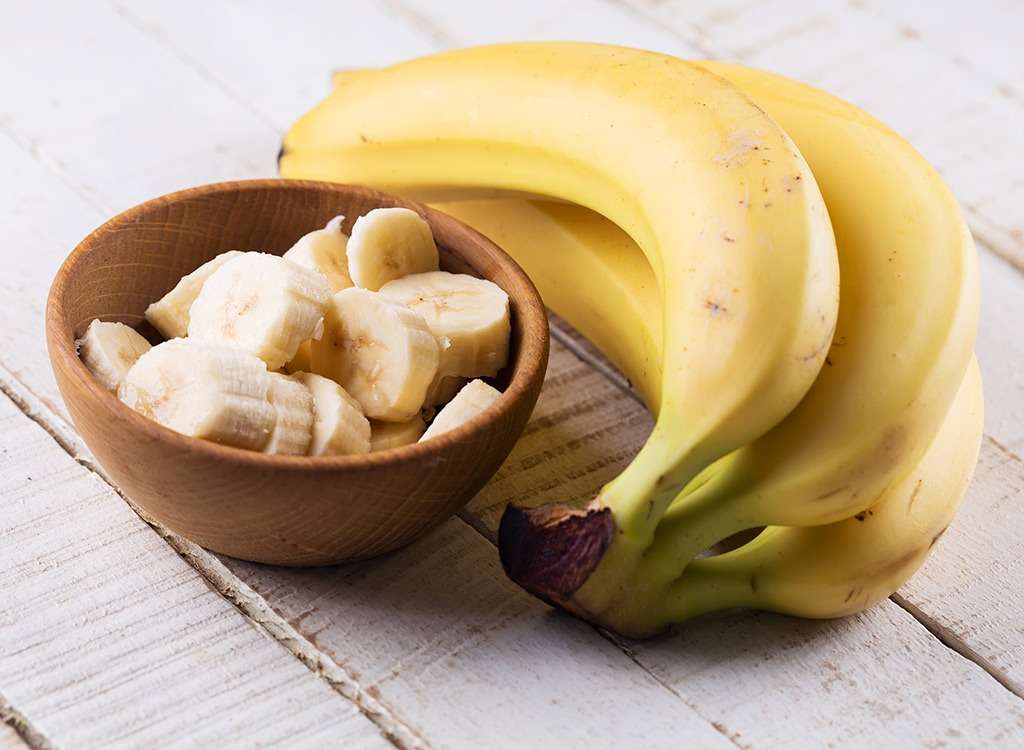
LET'S ADD BANANAS TO THE SNACK LIST
Bananas are not only extremely healthy, but also one of the most convenient snack foods. Both ripe and unripe bananas can satisfy the sweet taste and keep you healthy.
Bananas are also very easy to eat and easy to metabolize. They are generally well tolerated and easy to digest. All you need to do is peel them off and you're good to go.
Bananas are a great addition to yogurts, cereals, and smoothies, and they serve as a topping on whole grain toast with peanut butter. You can even use them in place of sugar in baking and cooking.
DO YOU KNOW?
Although bananas are considered a healthy fruit, but some people may feel uncomfortable as eating banana on an empty stomach, this is due to banana contents high magnesium and potassium.
Compiled and penned by Crocus Media
Products
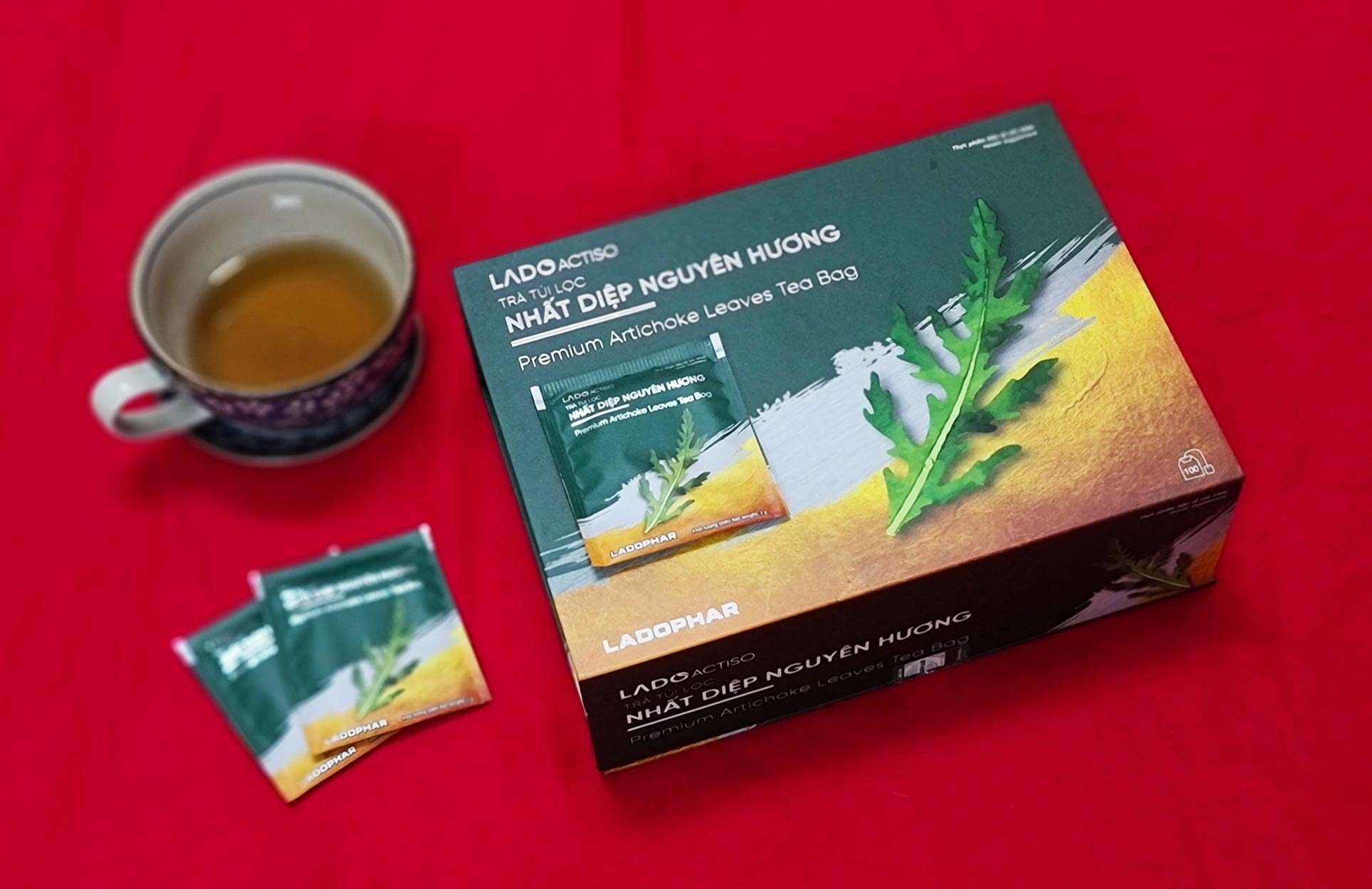
Premium Artichoke Leaves Tea
Artichoke leaves, also known as Cynara scolymus leaves, have been used to treat metabolic disorders. Artichoke leaf extract, has been studied to demonstrate hepatoprotective activity against obesity-induced obesity by a high-fat diet.




